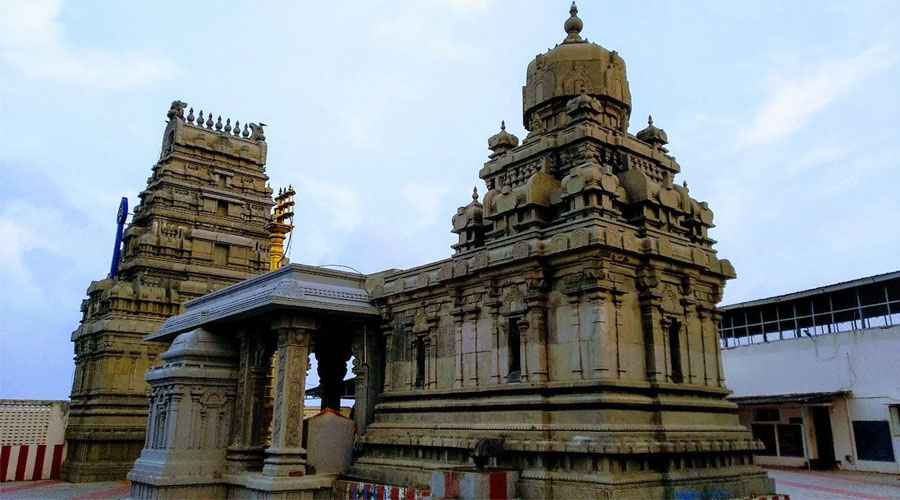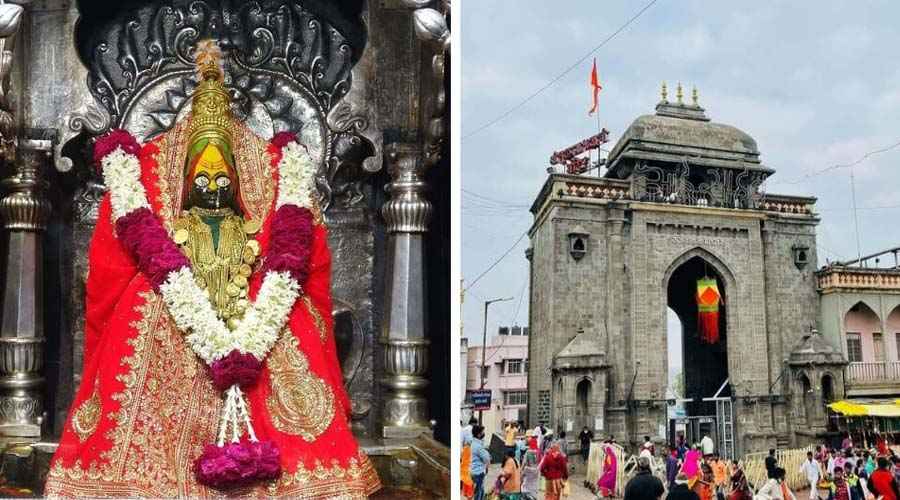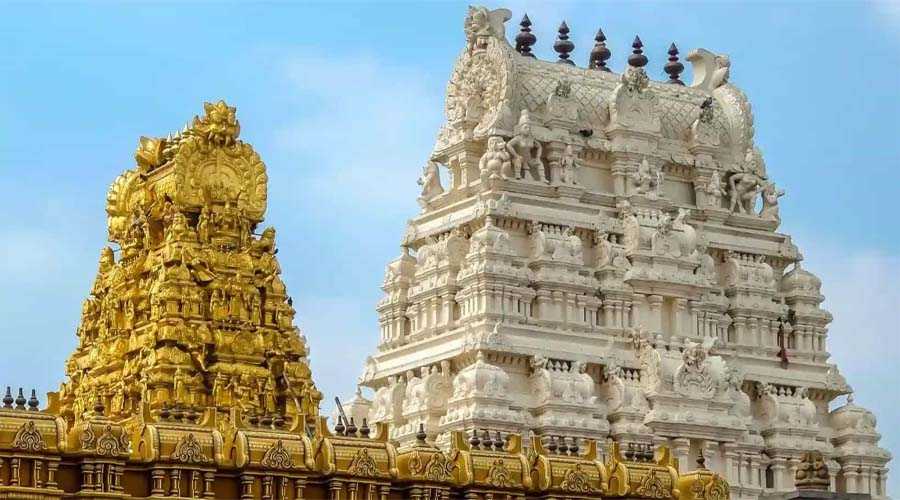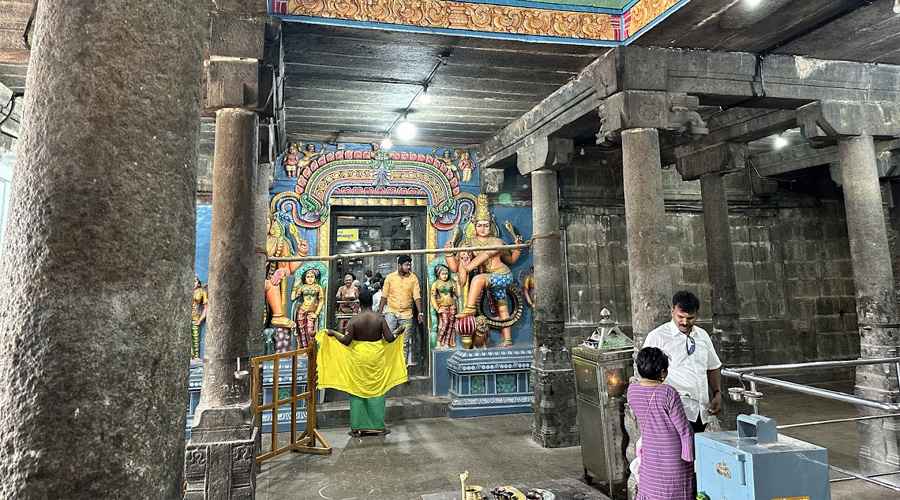The Arupadai Veedu Murugan Temples refer to a sacred circuit of six revered temples dedicated to Lord Murugan located in Tamil Nadu, South India. These six abodes, known as the Arupadai Veedu (meaning “Six Battle Camps” or “Six Abodes”), are steeped in ancient Tamil mythology, literature, and spiritual significance, celebrating the divine exploits and teachings of Lord Murugan, the son of Lord Shiva and Goddess Parvati.
These temples not only symbolize the victories of Lord Murugan over demonic forces but also represent spiritual metaphors of overcoming the six inner enemies: desire, anger, delusion, greed, pride, and jealousy. Over time, the Arupadai Veedu have become crucial pilgrimage destinations that embody devotion, cultural heritage, and architectural marvels.
The Significance of Arupadai Veedu
The phrase Arupadai Veedu directly translates to “six battle houses,” referring to the divine stations where Lord Murugan conducted his battles against evil forces and imparted spiritual wisdom to his followers. These temples appear in ancient Tamil Sangam literature like Tirumurukāṟṟuppaṭai and devotional classics such as Thiruppugazh, highlighting their deep roots in Tamil religious tradition.
Lord Murugan is traditionally associated with the mountainous “Kurinji” region in Tamil culture, and his temples reflect this connection both mythologically and geographically. The temples are focal points for many festivals — such as Thaipusam and Skanda Shashti — where devotees undertake rigorous vows, carry kavadis (decorative offerings), and seek blessings for peace and spiritual upliftment.
The Six Temples of Arupadai Veedu
Each of the six temples has a unique legend and spiritual emphasis linked to important phases of Lord Murugan’s life and his cosmic battles:
- Thiruparankundram – Located near Madurai, this temple is said to be the site where Murugan married Devasena, the daughter of Indra. It is the first of the six abodes and is unique in performing abhishekam (ritual bathing) for Murugan’s spear (vel) instead of the deity itself. The temple is built on a hillock symbolizing divine power and martial victory.
- Tiruchendur – Situated on the seashore near Thoothukudi, this temple commemorates Murugan’s decisive victory over the demon Surapadman, symbolizing the restoration of cosmic order. The temple architecture beautifully incorporates its coastal location, evoking the legend’s dramatic narrative of battle and triumph.
- Palani – Located atop a hill in Dindigul district, Palani temple worships Lord Murugan as Dhandayuthapani, a meditative ascetic carrying a staff. This abode symbolizes renunciation and reconciliation after a dispute with his family. The practice of tonsuring the head here is a well-known form of devotion that many followers observe.
- Swamimalai – Near Kumbakonam, this temple sits on an artificial hill and marks the spiritual teaching moment where Murugan explains the sacred Pranava mantra “Om” to his father, Shiva. It highlights the deity’s wisdom alongside his warrior aspects.
- Thiruttani – Near Chennai, it is regarded as the place where Murugan found inner peace and balance after his battles. The temple is on a hill, with 60 steps representing the Tamil calendar days, symbolizing the spiritual ascent to tranquility.
- Pazhamudircholai – Close to Madurai, this temple lies amidst a dense hill forest and features Murugan with both his consorts, Devasena and Valli. It represents the divine harmony and protection over nature and devotees.
Arupadai Veedu Murugan Temple Complex in Chennai
Apart from the original six temples, there is also a dedicated Arupadai Veedu Murugan Temple complex in Chennai, built between 1995 and 2002, which brings together the representations of all six sacred Murugan temples in one shrine located in Kalakshetra Colony, Besant Nagar. This granite temple complex allows devotees who cannot travel to all six abodes to offer their worship collectively. The layout reflects the geographical positioning of the original temples with additional shrines like the Mahavallabha Ganapati temple at the center. The construction was blessed and consecrated under the guidance of prominent religious leaders, making it a significant urban pilgrimage site.
Architecture and Cultural Legacy
The Arupadai Veedu temples exhibit classic South Indian temple architecture, featuring hilltop sanctuaries, intricate carvings, and ritual spaces that integrate with their natural surroundings. The stairways, corridors, and sanctums hold symbolic meanings tied to Tamil cosmology and spiritual processes. The festivals held in these temples involve age-old traditions like kavadi processions, sandalwood anointment of the deity, and mass pilgrimages, maintaining a vibrant cultural fabric through centuries.
Spiritual and Devotional Importance
Devotees believe these six abodes guide aspirants on a path from valorous action (battles against negativity) to inner peace and wisdom. Each temple embodies a step in that spiritual journey, from Murugan’s role as victorious commander of divine armies to benevolent spiritual guide. The pilgrimage to Arupadai Veedu is considered a transformative experience that fosters devotion, self-discipline, and ultimate liberation.
In summary, the Arupadai Veedu Murugan Temples are not only sacred places of worship but also custodians of Tamil culture, mythology, and art. They stand as living monuments to Lord Murugan’s multifaceted divine character—warrior, teacher, and lover—and attract millions seeking blessings, spiritual insight, and cultural connection.



